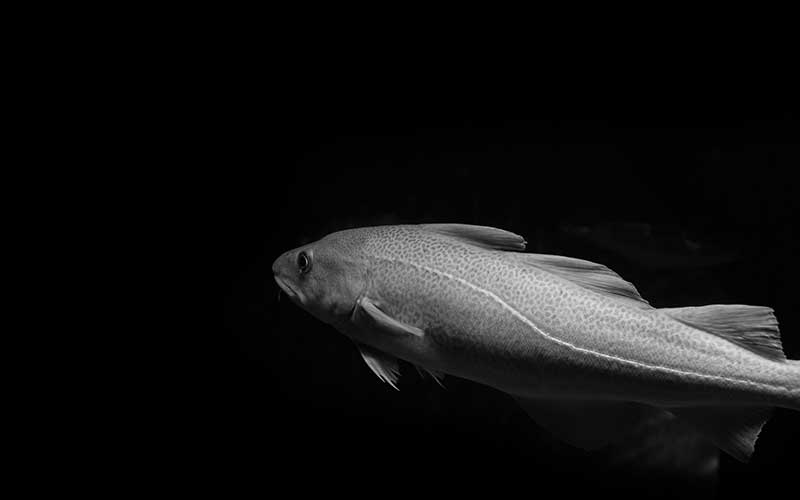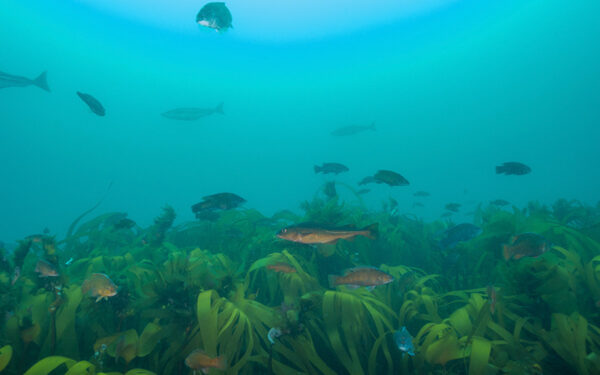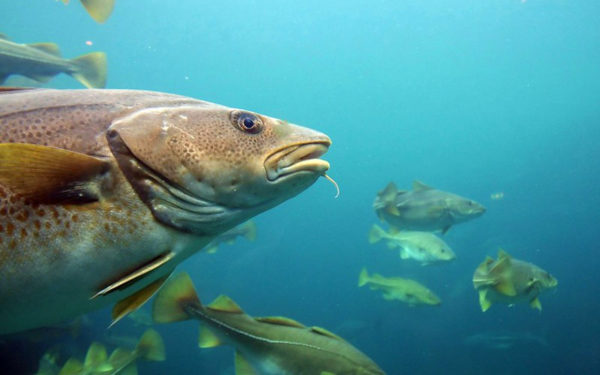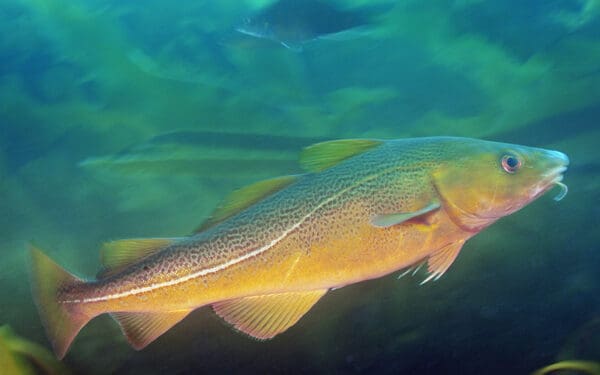
CLF is calling on the federal government to follow the law and rebuild Atlantic cod. Photo: Ricardo Resende on Unsplash
No fish is as closely tied to New England’s economy and culture as Atlantic cod. Coastal indigenous people fished cod for generations. For European settlers, cod fueled global trade for centuries. A wooden carving of the “Sacred Cod” hangs in the Massachusetts State House in recognition of the fish’s historic, cultural, and economic importance.
But today, our local cod has collapsed. It’s been decimated by decades of intense overfishing and poor management decisions. Cod in the Gulf of Maine and on Georges Bank currently linger at historic low population levels. For decades, our fishery managers failed to take effective action to stem the problem. Now, a rapidly warming ocean is making cod’s precarious position even worse.
In the face of dangerous inaction, CLF is calling on the federal government to follow the law and rebuild Atlantic cod. If management doesn’t improve now, we could lose our founding fish forever.
Atlantic Cod is in Crisis
How did we get into such a dire situation? This crisis comes from poor management at the regional and national levels. The New England Fishery Management Council (Council) is responsible for sustainably managing regional fish stocks. The 18-member Council decides such issues as limits for how many fish can be caught and what areas of the ocean are open to fishing. The National Marine Fisheries Service (NMFS) signs off on its decisions.
The Council manages Atlantic cod as two stocks: one in the Gulf of Maine and one on Georges Bank. Despite strict limits in recent years on how many cod can be caught – and rebuilding plans that have been in place since 2004 – the rules simply aren’t working. Scientists conclude year after year that recreational and commercial fishermen in New England continue to catch more cod than is sustainable. Many of these fish are not even reported to the scientists, which skews the data they rely on to make their population estimates. Moreover, fishery managers have repeatedly delayed needed actions by favoring short-term economic gains over the long-term health of cod and the fishing fleet.
Under federal law, specifically the Magnuson-Stevens Act, when a species is overfished, fisheries managers must immediately implement rebuilding plans that address the situation and rebuild stocks in as short a time as possible. Atlantic cod has been overfished for at least three decades with few signs of rebuilding. Despite this, New England’s mangers have increased cod catch limits repeatedly and have even opened protected areas that cod need for spawning and for juvenile nurseries to fishing.
The Council and NMFS have failed in their management duties. If we don’t hold them accountable for their failures and force effective conservation management actions, time could soon be up for Atlantic cod.
Effective Management Now
CLF has spent decades advocating before the Council and NMFS for the rebuilding and sustainable management of Atlantic cod. We’ve had many wins along the way, but unfortunately, the actions taken by managers in the wake of those wins haven’t been enough. Now, we’re demanding the federal government step up to their responsibilities and fully comply with the law.
We are petitioning NMFS to fulfill its obligations under the Magnuson-Stevens Act to rebuild cod. We’re asking for an amendment to the Atlantic cod management plan that immediately ends overfishing of the species and rebuilds all cod stocks in as short a time as possible.
Specifically, we’re calling on our federal managers to implement the following conservation and management measures to ensure a sustainable future for cod:
- Stop all fishing for cod, either commercially or recreationally. With populations at such low levels, continued fishing of any kind is simply irresponsible.
- Monitor 100% of every fish caught on all commercial groundfishing boats. This will get scientists better information about exactly how many cod are unintentionally caught and how this is affecting the population as a whole.
- Close large areas to fishing to protect cod spawning grounds and the large, highly productive female cod. These areas – and these females – are critical to the species’ future.
- Ensure cod aren’t caught when people are fishing for other species by requiring specific nets and other fishing gear that avoid cod. This will prevent cod from being killed unintentionally by other fisheries.
- Implement a catch-and-release program for Atlantic cod in recreational fisheries. Such a program will still allow recreational charters to offer fishing trips without threatening this iconic species.
These steps will do three key things:
- end overfishing of cod,
- protect cod where they live and breed,
- and provide more accurate data on how many cod are killed so that scientists can better understand the species.
Cod Can’t Wait
We don’t have a moment to lose. Decades of overfishing put us in this crisis. Now, climate change will make it harder to get out of it. But with these actions, both Atlantic cod and the fisheries that rely on it might be there for future generations of New Englanders.
It’s time to give cod a fighting chance and not just relegate it to our history books.



